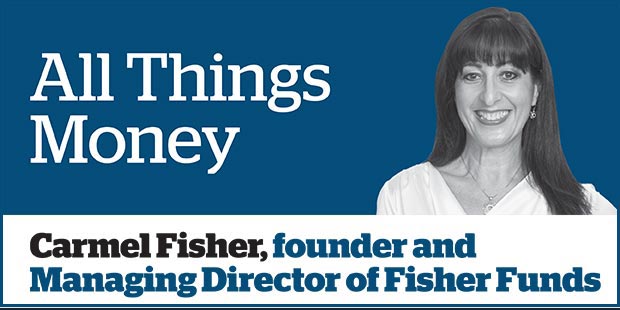In an investment team meeting the other day, a colleague outlined his thinking in complex terms that had me scratching my head. I thought: if I'm struggling to understand him, it's a good thing he's not sitting in front of our clients.
He was with his investment peers, so he was okay in assuming they all spoke the same language. But I nevertheless thought about how times have changed - and not necessarily for the better.
At university and in my early career, I was drawn to the teachings of Warren Buffett, Peter Lynch, John Bogle and Ralph Wanger - investment experts who could explain simply the secrets of their success. They were just as smart as my colleagues are today, yet didn't feel the need to demonstrate they were the smartest guys in the room by using jargon and big words.
I have always remembered a tip from Peter Lynch - never invest in any idea you can't illustrate with a crayon. Buffett also sought to explain his ideas simply, warning investors to walk in the opposite direction if they didn't understand an investment.
Financial services firms around the world frequently use complicated terminology when simple words suffice.
Last year, the Wall Street Journal asked a group of financial professionals to list their most loathed investment jargon. The list ran to five pages and included such gems as enhanced indexing, smart beta, style drift and proprietary investment strategies (disclaimer: I am guilty of using the last term, because it sounded better than "our own investment strategies").
It was not so much the terms themselves that peeved the financial professionals, it was their use as a marketing ploy and the potential for misleading.
For example, enhanced indexing suggests something better than indexing. An index fund tracks an underlying market, or index, aiming to produce a return in line with that market. An enhanced index fund tilts its investments towards a particular segment of the market, such as small companies. This tilt will produce a different return but is it enhanced? Sometimes it will produce a better return than the index; sometimes worse.
Style drift is when a money manager deviates from the investment mandate by shifting towards another style of investing. Typically this happens when the original style or category is out of favour. The thing is, investors aren't told about this shift until it has happened and can't do anything about it. Yet 'style drift' almost makes it sound like a good thing.
Financial experts are not the only ones irritated by jargon. Investors say they just want someone to tell them the truth in a way that makes sense and resonates with them. They want complex aspects of investing illustrated with a crayon (figuratively) and don't want ideas dressed up in marketing spin.
Well, they say that's what they want.
It seems some investors are indeed impressed by the smart guy in the room and want finance people to dazzle them with proof of their brilliance. How else were countless investors persuaded to invest in instruments like CFDs that were complex and confusing, even for other financial professionals?
As humans, we are prone to being influenced by terminology. The psychology book Mindless Eating showed people's opinions of food are seriously influenced by the way it is presented or described. When given two identical pieces of chocolate cake, researchers invariably preferred the piece labelled "Belgian Black Forest Double Chocolate Cake" over the piece labelled "chocolate cake". Some even thought the name made it taste better...
Investing is too important for people not to understand it. Investors have an obligation to try to understand or find someone who can make it understandable.

